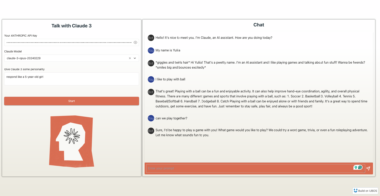MCP Servers
A TypeScript-based server implementation for Model Context Protocol (MCP) that provides integration tools for various services like JIRA and TODO management.
 Features
Features
- Multiple Tool Integration: Modular architecture supporting multiple tool integrations
- Type Safety: Full TypeScript support with Zod schema validation
- ESM Support: Modern ES Modules implementation
- Extensible: Easy to add new tools and integrations
 Current Tools
Current Tools
JIRA Integration
- Create issues with customizable fields
- Automatic response formatting
- Schema validation for issue creation
TODO Management
- Create todos with priority and due dates
- Flexible schema supporting optional fields
- Formatted response messages
 Project Structure
Project Structure
src/
├── config/ # Tool configurations
│ ├── jira-tool.config.ts
│ └── todo-tool.config.ts
├── constant/ # Constant definitions
│ └── tool-name.ts
├── schema/ # Zod schemas for validation
│ ├── jira.ts
│ └── todo.ts
├── server/ # Server management
│ └── mcp-server-tool-manager.ts
├── tools/ # Tool implementations
│ ├── jira/
│ │ └── create-issue.ts
│ └── todo/
│ └── create-todo.ts
└── index.ts # Main entry point
 Adding New Tools
Adding New Tools
- Define tool constants in
constant/tool-name.ts - Create schema in
schema/directory - Implement tool handler in
tools/directory - Add configuration in
config/directory - Register tool in
index.ts
Example:
// 1. Add constant
export const NEW_TOOL = {
ACTION: "action_name"
} as const;
// 2. Create schema
export const newToolSchema = z.object({
// ... schema definition
});
// 3. Implement handler
export const handleAction = async (
args: z.infer<typeof newToolSchema>,
extra: RequestHandlerExtra
): Promise<CallToolResult> => {
// ... implementation
};
// 4. Add configuration
export const newToolConfig = {
name: "New Tool",
version: "1.0.0",
tools: [
{
name: NEW_TOOL.ACTION,
schema: newToolSchema,
handler: handleAction,
},
],
};
 Development Workflow
Development Workflow
- Create feature branch
- Implement changes
- Run tests (when implemented)
- Build project
- Submit PR
 Notes
Notes
- Uses ES Modules for better modularity
- Implements Model Context Protocol for standardized communication
- Follows TypeScript best practices
- Zod schema validation for type safety
 Roadmap
Roadmap
- [ ] Add more JIRA operations
- [ ] Implement TODO persistence
- [ ] Add authentication
- [ ] Add testing framework
- [ ] Add more integrations (GitHub, Slack, etc.)
 License
License
MIT
MCP Server
Project Details
- RahulRana0707/mcp-server
- Last Updated: 4/2/2025
Recomended MCP Servers


An MCP server providing intelligent transcript processing capabilities, featuring natural formatting, contextual repair, and smart summarization powered by...
Plugged.in MCP Server manages all your other MCPs in one MCP.
Autonomous debugging agent MCP server

A powerful PHP library for the Bitrix24 REST API

An MCP proxy server that aggregates and serves multiple MCP resource servers through a single interface

MCP server that visually reviews your agent's design edits

OpenAPI Schema Model Context Protocol Server
This project is a Model Context Protocol (MCP) server for interacting with the VRChat API.

 From vibe coding to vibe deployment. UBOS MCP turns ideas into infra with one message.
From vibe coding to vibe deployment. UBOS MCP turns ideas into infra with one message.





